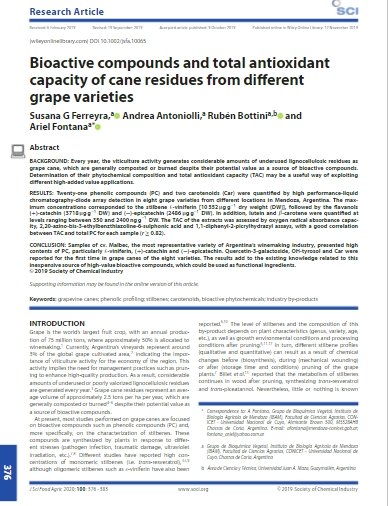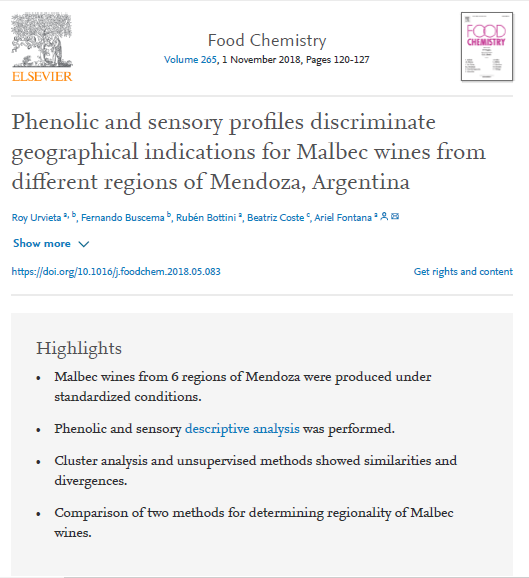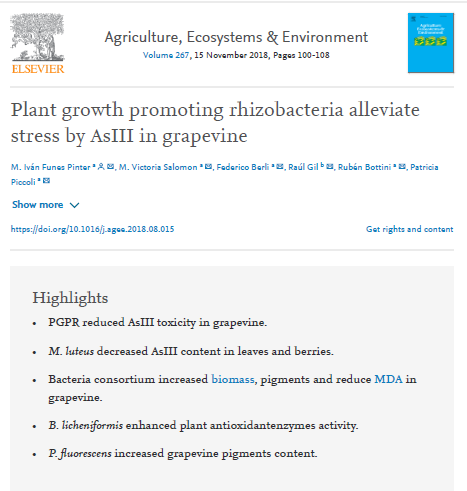Browsing Institucional - Difusión by Author "Bottini, Rubén"
Now showing items 1-3 of 3
-
Bioactive compounds and total antioxidant capacity of cane residues from different grape varieties
Ferreyra, Susana Gisela; Antoniolli, Andrea; Bottini, Rubén; Fontana, Ariel (Comité editorial Journal of the Science of Food and Agriculture, 2019-10-08)BACKGROUND Every year, the viticulture activity generates considerable amounts of underused lignocellulosic residues as grape cane, which are generally composted or burned despite their potential value as a source of bioactive compounds. Determination of their phytochemical composition and total antioxidant capacity (TAC) may be a useful way of exploiting different high‐added value applications. RESULTS Twenty‐one phenolic compounds (PC) and two carotenoids (Car) were quantified by high performance‐liquid chromatography‐diode array detection in eight grape varieties from different locations ... -
Phenolic and sensory profiles discriminate geographical indications for Malbec wines from different regions of Mendoza, Argentina.
Urvieta, Roy; Buscema, Fernando; Bottini, Rubén; Fontana, Ariel (Comité Editorial Food Chemistry., 2018-11-01)Malbec wines from 27 parcels from the three most important winemaking regions of Mendoza, Argentina, were produced under standardized winemaking conditions, and analyzed for phenolic composition and by means of sensory descriptive analysis. Different methods of characterization and cluster analysis for each data matrix showed that some locations of Mendoza could be significantly separated from each other. The results of unsupervised statistical methods were compared using a test for similarities and divergences, also showing that different locations may be associated. The current report is the ... -
Plant growth promoting rhizobacteria alleviate stress by AsIII in grapevine.
Funes Pinter, Mariano Iván; Salomón, María Victoria; Berli, Federico; Gil, Raúl; Bottini, Rubén; Piccoli, Patricia (Comité Editorial Agriculture, Ecosystems and Environment., 2018-11-15)Arsenic (As) in the environment is an increasing problem all over the world that limits crop yield, and therefore, remediation strategies like inoculation with plant growth promoting rhizobacteria (PGPR) are necessary. The objective of the current study was to assess PGPR ability to reduce AsIII toxicity in grapevine (Vitis vinifera L. cv. Malbec). Two-year old grape plant-sprouts grown in 10 L pots were inoculated weekly with Bacillus licheniformis, Micrococcus luteus, Pseudomonas fluorescens, a consortium of the three strains, or water (control). Plants were irrigated with water (-As) or a 50 ...












